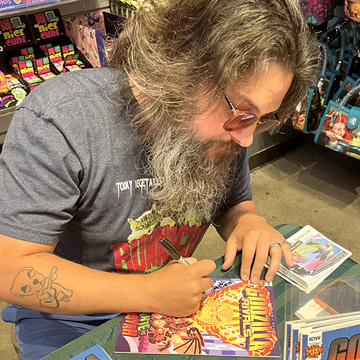why saying "Je Suis Charlie" may not be the answer you're looking for
Thursday, January 8th, 2015The cultural, social, and economic background contributing to the Charlie Hebdo attack is extremely complex.
From my outside perspective (i.e. only reading about it on the internet for the past decade), Paris has been at a cultural and economic boiling point for a while now.
I'm not suggesting that the attack on Charlie Hebdo was justified in any way whatsoever. However, I think there are a lot of contributing factors that led to the violence and it's worth exploring them.
Saying "Je Suis Charlie" is a culturally loaded statement that many people may not completely understand. This attack isn't as simple as "violent Islamic extremists attacking free speech" -- it's about cultural inequalities in France (specifically, Paris) and how they led to this painful incident.
To give you some perspective, here are two articles that describe cultural tensions present in the greater Paris region and how they may relate to the Charlie Hebdo attack:
France's 9/11 no surprise given the massive alienation in society
Charlie Hebdo attack: A French perspective
If you're too lazy to read those articles, here's a basic primer on the generalized cultural layout of Paris...
The city's wealthy core tends to be full of businesses, tourists, and affluent white residents. As the metropolitan region expands outwards, the population diversifies and the average wealth trends down. In the suburbs, there are large North African and Islamic immigrant communities with limited opportunities for economic growth and often discouraging social prejudice outside of their immediate culture.
If you really want to get specific about it, here's an intriguing study about trends in socio-spatial inequalities in the Paris area.
While that study points out how poverty in the region seems to have diminished in the past twenty or so years, it also poses this fascinating question: "Does the geographical area chosen for this study mask the exclusion of low- and middle-income households, who can no longer afford to live in the Paris region?"
With all of these factors considered, I feel that "Je Suis Charlie" isn't an answer to the attacks that many of my cartoonist peers truly understand. Surely, it indicates a preference for art over violence and expression over oppression. And that's fantastic.
But the saying is still loaded with cultural implications which have, by and large, been kept out of the coverage of this horrible event.
Charlie Hebdo's offices are in Central Paris, a locality that both symbolizes and possesses a great degree of cultural privilege and economic prosperity. Charlie Hebdo regularly ridiculed and attacked Islam, a faith and cultural background possessed by many of the immigrants in the Paris suburbs who're struggling with low incomes, crime, and cultural prejudice from others.
Here's an incredible collection of information about the attack that includes detailed information about the victims and the publication. An interesting idea covered in that article is how "Je Suis Ahmed" has emerged as an alternative to "Je Suis Charlie". (Ahmed was a Muslim cop who was killed during the attacks.)
Essentially, here's what I think -- "Je Suis Charlie" is easy to say. It's catchy. It represents ideals of free speech and non-violence. But it's also from a cultural environment where this "Charlie" can easily be synonymous with the kind of ignorance and cultural prejudice that accompanies a place of privilege in modern French society.
Granted, I'm a cartoonist and satirist from a relatively culturally privileged place in American society. Maybe I'm not the best person to comment on this situation. Hell, my comic book hitting shops this month is called Holy F*ck. It recasts Jesus as a gun-happy hedonist on a quest to stop -- and if needs be, kill -- other gods who are violently desperate to be worshiped.
In a lot of ways, I relate to the provoking cartoons of Charlie Hebdo. I've been actively satirizing culture I find oppressive and ignorant for my entire adult life. I've done it through comics, zines, music, and podcasts. Satire is one of my greatest passions.
As an avid practitioner of satire, I regard it as an often misunderstood tool with potential for incredible power.
If your intent is to simply mock or criticize, I don't think satire is especially powerful. However, if your intent is to pose questions, test the boundaries of the self, explore cultural limitations, and unite people with laughter, then I think satire is an immensely positive force for growth and exploration.
I haven't seen enough of Charlie Hebdo to say whether or not I think their satire is effective. However, a positive force for growth and change was not readily apparent to me in my limited exposure to their satirical cartoons.
From my outside-looking-in perspective, I think the real news story here should be that Paris has long been struggling with inequalities that boiled over into a sad and unfair expression of violence. And "Je Suis Charlie" is a catchphrase that may represent many of those inequalities.
